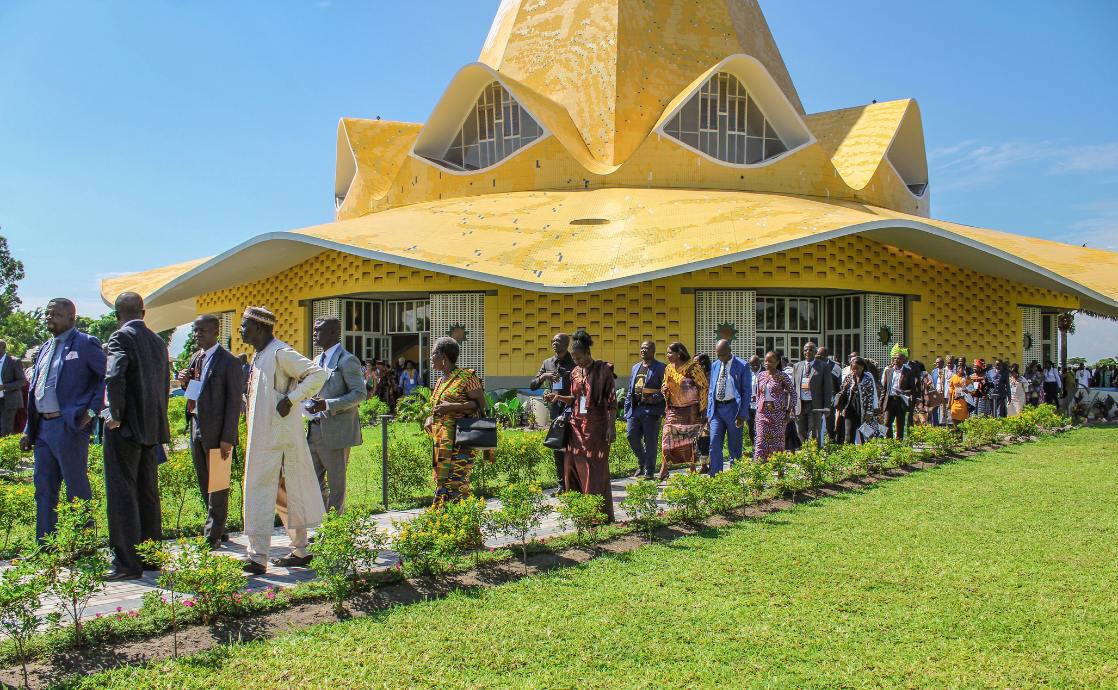Throughout history, humanity has witnessed an unenviable torrent of strife and discord, manifesting in wars, ethnic conflicts, and civil unrest. Amidst the cacophony of human turbulence, the Bahá’í Faith emerges as a beacon of hope, advocating for the construction of a metaphorical Temple of Unity. This concept transcends mere architectural symbolism; it embodies a profound philosophical undercurrent that addresses the pressing need for cohesion in a fractured world. The teachings of Bahá’u’lláh, the founder of the Bahá’í Faith, provide pivotal insights into building a community that fosters peace and solidarity, even in the most adverse conditions.
The fundamental tenet within Bahá’í teachings is the oneness of humanity. This principle asserts that all individuals, regardless of race, nationality, or religion, are part of a single human family. The recognition of this interconnectedness is not simply an idealistic notion but a necessity for survival in an era marked by polarization. The temple, as envisioned by Bahá’ís, stands as a metaphor for unity, inviting diverse communities to converge in a shared quest for enlightenment and understanding. The notion of a temple extends beyond bricks and mortar; it symbolizes the nurturing of community spirit amidst the harsh realities of global conflict.
One of the primary observations within the Bahá’í framework is the inherent systemic nature of conflict. Rather than attributing discord to individual malice or historical grievances, Bahá’í teachings advocate for a broader perspective. They suggest that many conflicts arise from misunderstandings, miscommunications, and the failure to recognize the shared destiny of humanity. By fostering dialogue and mutual respect, individuals and communities can dismantle barriers that perpetuate enmity. Building a Temple of Unity requires that followers engage in sincere conversations, promoting the exchange of ideas and cultural narratives that enrich collective understanding.
Education represents a cornerstone in the commitment to building a unified society. The Bahá’í teachings emphasize the importance of knowledge as a transformative tool, capable of eradicating ignorance—the root cause of many conflicts. Educating individuals about diverse cultures, religions, and philosophies cultivates empathy and compassion. In enlightening one another, communities can bridge divides that may otherwise lead to mistrust. This educational imperative extends not just to formal schooling, but to the nurturing of social and emotional intelligence within community interactions.
The active promotion of equality is another pivotal aspect of the Bahá’í vision for unity. Gender equality, racial equality, and socio-economic equity are viewed as foundational pillars for establishing harmony. The teachings elucidate that when individuals are empowered, regardless of their backgrounds, society flourishes. This empowerment ensures that no voice is marginalized, allowing a multitude of perspectives to be valued and heard. As a countermeasure to oppressive structures, Bahá’ís advocate for policies and practices that dismantle systems of inequality, asserting that societal progress is inextricably linked to the promotion of justice for all.
Moreover, the concept of service is ingrained deeply within Bahá’í teachings. A Temple of Unity is not merely a space of gathering; it is a dynamic entity that encourages its members to engage in acts of service directed toward both local and global communities. Such service embodies the idea of selflessness, where personal interests are submerged in the greater welfare of humanity. By participating in altruistic initiatives—whether through social action projects, community development efforts, or humanitarian outreach—individuals solidify their commitment to unity. When individuals embrace a service-oriented mindset, they contribute to an ethos that nurtures community cohesion, resilience, and strength in difficult times.
The transformative power of prayer and meditation also plays a critical role in fostering peace and unity. Bahá’í teachings advocate for the regular practice of personal and communal prayer as a means of connecting with the divine presence and seeking guidance in turbulent times. This spiritual dimension provides individuals with a reservoir of patience, understanding, and compassion, equipping them to navigate the complexities of conflict with grace. In their personal reflections, Bahá’ís find solace and strength, reinforcing their commitment to the collective pursuit of unity.
Transformative change within societies requires long-term vision and sustained effort. The building of a Temple of Unity is a gradual process; it demands perseverance and unfaltering commitment from its constituents. Bahá’í teachings encourage perseverance in the face of adversity, positing that setbacks are opportunities for growth rather than definitive failings. With faith in the eventual triumph of unity over division, Bahá’ís remain steadfast in their endeavors, enshrining the principles of love, respect, and harmony as guiding lights.
Ultimately, constructing a Temple of Unity amidst war and conflict is a collective endeavor that transcends borders, cultures, and ideologies. It beckons individuals from all walks of life to reconsider traditional narratives of division and hostility, advocating instead for a paradigm rooted in collaboration and shared purpose. In the heart of Bahá’í teachings lies the profound conviction that a united humanity is not merely a lofty aspiration, but a tangible possibility through mutual understanding, respect, and commitment to the common good. As communities gravitate toward this vision, they illuminate the path forward, building bridges of understanding in the face of a world marred by discord.
